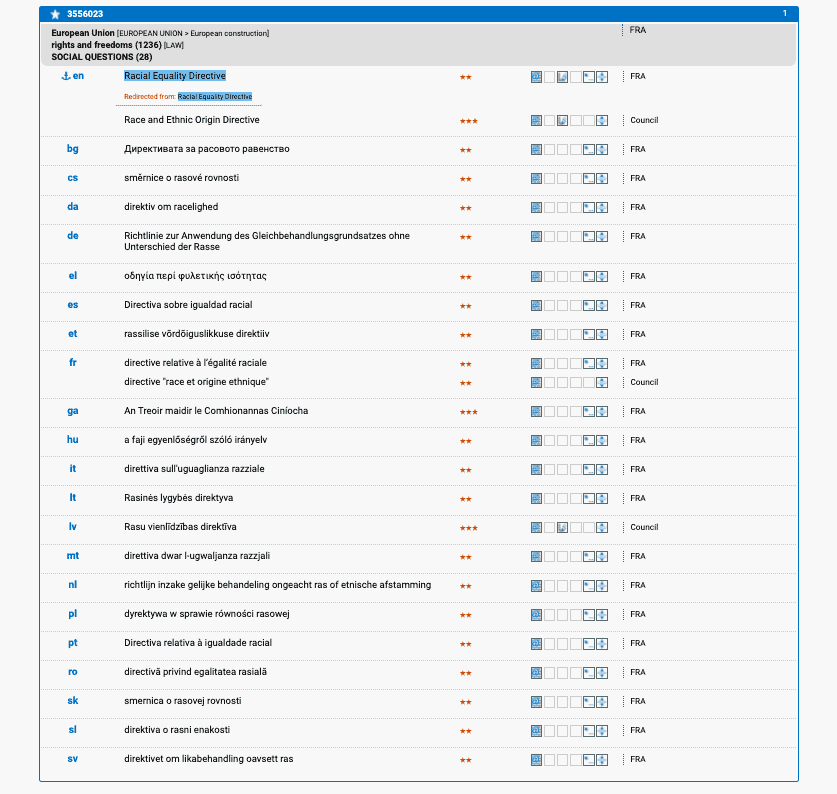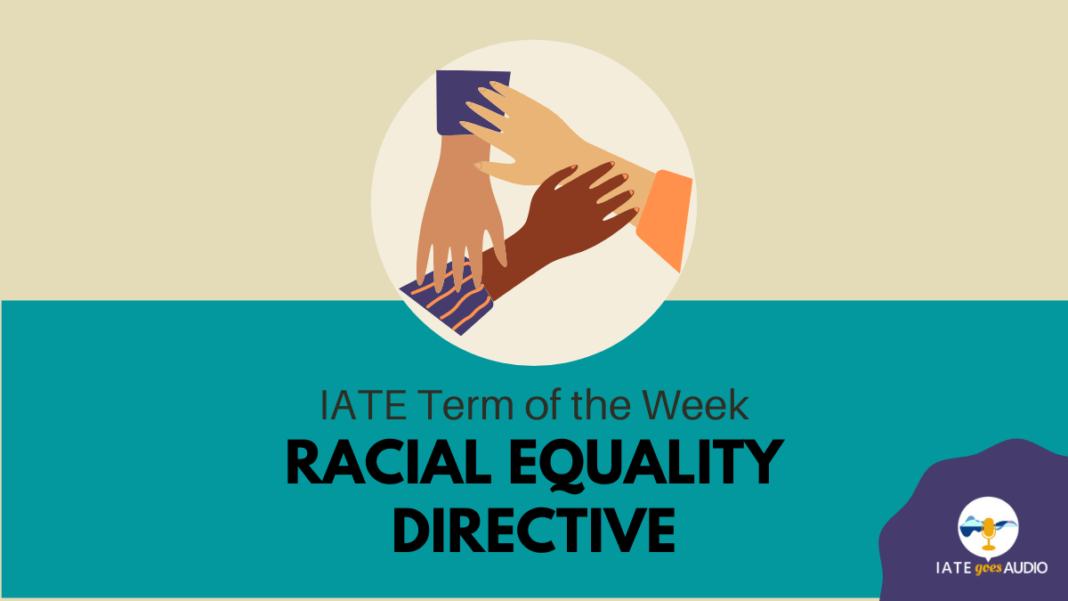The Racial Equality Directive, also called Race Equality Directive, is a European Union Act that came into force in the year 2000. It represents one of the measures taken by the European Parliament to fight against racial discrimination in the European Union. The directive recognizes that every human being has the fundamental right to receive equal treatment, opportunities, and protection regardless of their race, ethnicity, or nationality. The Racial Equality Directive is therefore one of a number of European directives aiming to prevent discrimination based on characteristics such as gender, sexuality, age, disability, and religion.

Its overall aim is to implement “the principle of equal treatment between persons irrespective of race or ethnic origin” in all of the EU member states. The text of the directive understands the concept of ‘discrimination’ as:
- treating a person less favourably than another person on the basis of race and/or ethnicity
- creating any practice or arrangement which would, for no legally justifiable reason, put persons of certain races and/or ethnicities at a disadvantage.
In more concrete terms, the Racial Equality Directive aims to provide to all people, regardless of ethnic origin:
- equal access conditions to employment and promotion opportunities in all types, levels, and fields of employment
- equal access to vocational guidance, training, education, and retraining
- equal employment and working conditions, including in regards to payment and termination of contracts
- equal rights to participate in organisations for workers and employers and to receive the benefits of belonging to such organisations
- equal access to social security and healthcare
- equal rights to education, housing, and any other goods and services available to members of the public
Since its implementation, some studies have looked at whether the Racial Equality Directive has had an impact on racial discrimination in the European Union. A 2013 policy brief from the Institute of European Studies has identified that one of the biggest challenges in fighting against racial discrimination in Europe is a lack of awareness of the directive. According to the first European Union Minorities and Discrimination Survey (EU-MIDIS) from 2009, 82% of European citizens who have experienced discrimination did not report it. This leads the policy brief to conclude that although the Racial Equality Directive provides an important legal framework for eliminating racial discrimination in the EU member states, efforts still need to be made to raise awareness of these provisions. One of the recommendations of the policy brief is that authorities and employers should actively work to prevent the emergence of possible discriminatory practices and situations.
If you feel like you or someone you know has experienced discrimination, please contact the national equality body of your country.
IATE goes AUDIO

This week, you can tune in to another IATE goes Audio feature: click below to listen to ‘Racial Equality Directive’ explained in English.
Sources
Uyen DO, Thien (2013). The Racial Equality Directive – from law to practice. IES Policy Brief Issue 2013/07/September 2013. Available at: http://aei.pitt.edu/60805/ [Accessed: 10/06/2020]
Council Directive 2000/43/EC of 29 June 2000 implementing the principle of equal treatment between persons irrespective of racial or ethnic origin. Available at: https://eur-lex.europa.eu/legal-content/EN/TXT/?uri=CELEX:32000L0043 [Accessed: 10/06/2020]
European Union Minorities and Discrimination Survey 2009 – Main Results Report. Available at: https://fra.europa.eu/en/publication/2012/european-union-minorities-and-discrimination-survey-main-results-report [Accessed: 10/06/2020]
 Janna Mack. From Luxembourg, she has degrees in Linguistics, Education, and Translation from Glasgow University.
Janna Mack. From Luxembourg, she has degrees in Linguistics, Education, and Translation from Glasgow University.

